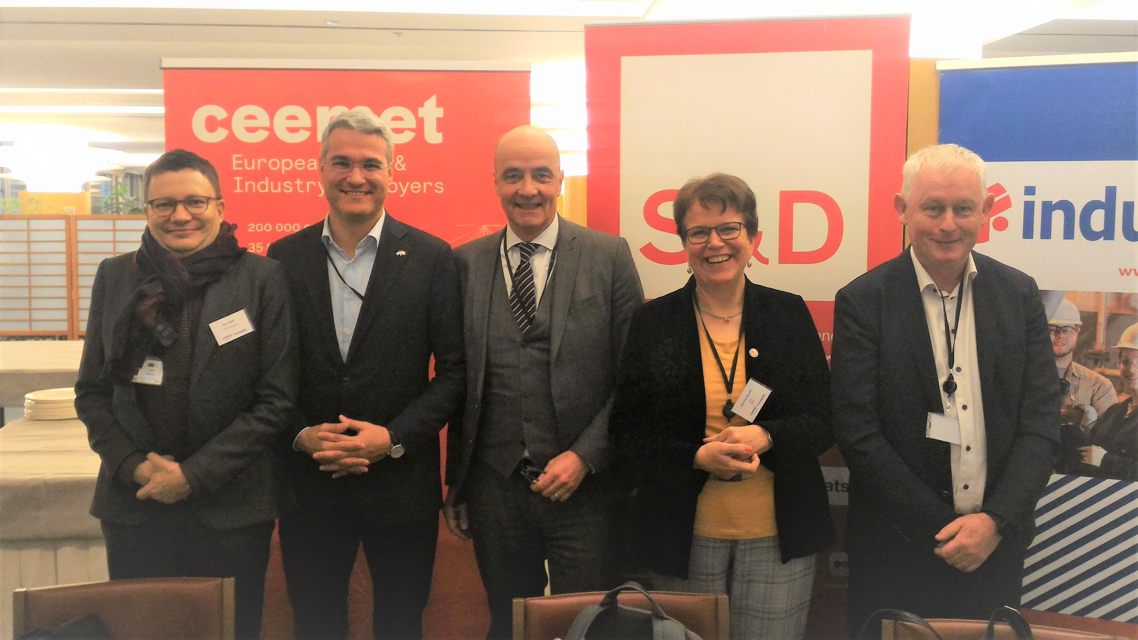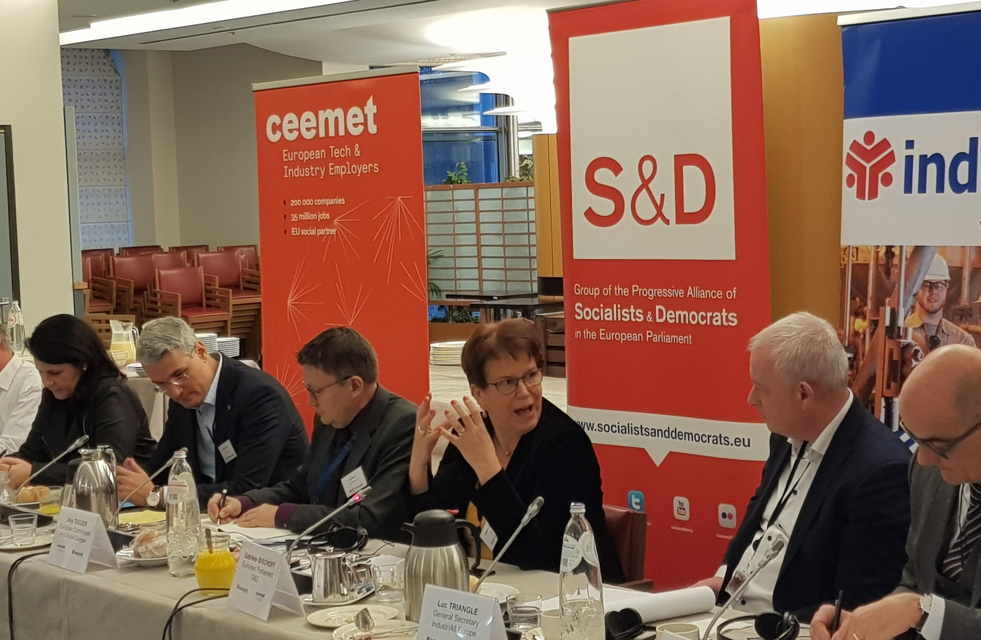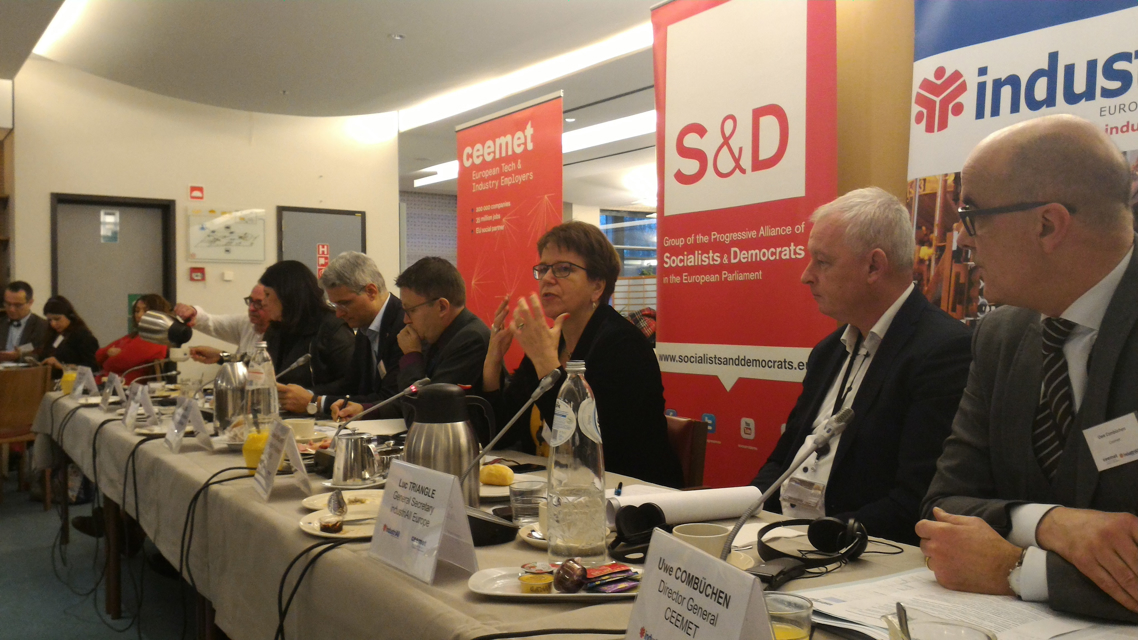Social dialogue and collective bargaining can deliver solutions for the huge transformation of our industries. Social partners must live up to this responsibility.
The breakfast meeting in the European Parliament, hosted by MEPs Gabriele Bischoff (S&D) and Dragos Pîslaru (RE), provided an occasion for the social partners to highlight the potential of social dialogue as a tool for adaptation in a rapidly transforming world of work and to reflect with MEPs on how to promote it and improve its impact. As co-legislators, social partners potentially have a privileged position in the European policy process. Supporting social dialogue was therefore highlighted as a common concern for social partners and the European Parliament.
“Social dialogue must be more than Sunday speeches, there must be action” underlined Gaby Bischoff. She expressed hope that the period, where EU policies were essentially weakening social dialogue and collective bargaining systems, has come to a definite stop and that it was now high time to strengthen social dialogue and collective bargaining in Europe.
Dragos Pîslaru underlined the need for social dialogue to be forward-looking and drive innovation and importantly, to contribute to building a more cohesive Europe where social dumping is a concept of the past.
The huge transformation of our industries that lies ahead, driven by the need for decarbonisation but also digitalisation processes, globalisation and the demographic challenge calls for joint answers and negotiated solutions to ensure a socially responsible transformation, leaving no-one behind. Social dialogue and collective bargaining can deliver these answers, and social partners must live up to the responsibility vested in them by delivering concrete results, underlined Luc Triangle.
The recent acknowledgement of the importance of sector-level collective bargaining by the OECD, one of the central demands of our ‘Together at Work’ campaign and the endorsement of collective bargaining by the new President of the European Commission has re-opened a debate that will hopefully lead to the much-needed restoration of collective bargaining at national level and social dialogue at all levels.
The European level also has an important role to play. Consulting the European social partners in the early stages of the legislative process will ensure that European legislation is not disconnected and takes account of the specificities in our sectors. Moreover, the European-level social partners must play a role in the larger debates on the future of Europe. The upcoming ‘Conference on the Future of Europe’ - a 2-year Conference to be organised by Parliament, Council and Commission that will give a cross-section of society the chance to contribute shaping the future of the EU – will hopefully provide such an opportunity.
For more information or further comment please contact senior policy adviser Isabelle Barthès.


